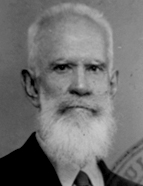

Rafael Altamira is considered "the most prominent figure in Spanish historiography during the first third of the 20th century. His work combines a great diversity of themes with a unifying criterion that remained constant throughout his life: specialised research, alongside a commitment to dissemination and teaching.” Altamira was recognised as a historian embodying Spain’s most advanced methodological approaches at the time. His work displayed unique characteristics, including "a modern concept of history that sought to integrate all its elements; an interest in historiography and methodology; efforts to consolidate scientific history by promoting it through textbooks or committees; and a patriotic use of history, aimed at fostering peace and understanding among nations" (“Estudio preliminar”, 1988, pp. 17 and ff.). As a specialist in the History of Law, he developed a further specialisation in the Laws of the Indies. His approach to this field was marked by particular features: a focus on source criticism; the pursuit of scientific and conceptual categories; a scarcity of rigid definitions, as he preferred description over risky definitions when handling sources; and an emphasis on seminar-style learning (“Relaciones e influencias entre la masonería…”, 1996, p. 385). It has been said that "much of the rapprochement of Spain to the New World, and of America to the old Peninsula, has been achieved through Don Rafael’s efforts, directly or through his students and their successors" ("Las clases de Don Rafael Altamira", 1966, p. 60). Altamira is also celebrated as a historian who played a critical role in the professional transformation of university historiography and in the ideological reshaping of national culture. He sought to use his work to "restore the Spanish people’s faith in their native qualities and their capacity for civilised life," highlighting their significant contributions to humanity. According to Altamira, the challenge was to help Spaniards become aware of these qualities through the study of their own history. He proposed shifting the focus towards Spanish civilisation, particularly in popular culture, rather than concentrating solely on political achievements ( Historiadores en España… , 2013, pp. 87 and ff.). Altamira sought to uncover the internal history of the Spanish people through the methods and sources of critical scholarship. He proposed a transformation of Spanish historiography, calling for a new, “objective” and “scientific” approach, one that moved away from the traditional focus on the biographies of great men to study instead the histories of social collectives. For Altamira, the historian’s role was to understand and explain peoples as “social units, organically, in all aspects of their activity and in all the functions of their energy.” He believed that “the essential psychology of a nation” emerged from the interaction between its enduring characteristics and the ever-changing pressures of historical events.
This work is financed by national funds through FCT - Foundation for Science and Technology, I.P, in the scope of the projects UIDB/04311/2020 and UIDP/04311/2020.
